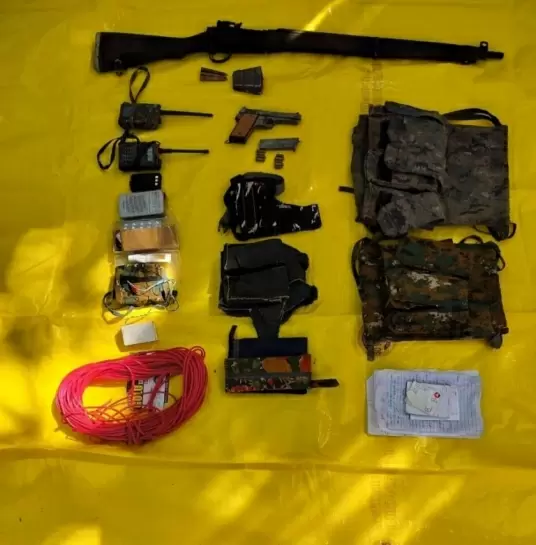Chimps more likely to share tools during challenging tasks
24-December-2019
Chimpanzees that use a multi-step process and complex tools to gather prey are more likely to share tools with novices, new research has found.
The study, published in the journal Proceedings of the National Academy of Sciences, helps illuminate chimpanzees' capacity for prosocial -- or helping -- behaviour, a quality that has been recognised for its potential role in the evolution of human cultural abilities.
"Non-human primates are often thought to learn tool skills by watching others and practicing on their own, with little direct help from mothers or other expert tool users," said first author of the study Stephanie Musgrave, Assistant Professor of Anthropology at the University of Miami in the US.
"In contrast, the results from this research indicate that social learning may vary in relation to how challenging the task is: during tasks that are more difficult, mothers can in fact play a more active role, including behaviours that function to teach," Musgrave said.
In this study, researchers examined the transfer of tools between chimpanzees during termite gathering, and compared the population in the Goualougo Triangle, Republic of Congo, with the population in Gombe, Tanzania.
Termites and other insects are a valuable source of fat and protein in the diet of wild chimpanzees and also contribute important vitamins and minerals.
Termites build complex nest structures that encompass a network of below-ground chambers, sometimes topped with a towering, freestanding mound reaching several meters high.
Chimpanzees in both locations use fishing probe style tools to harvest termites, but Goualougo chimpanzees use multiple, different types of tools sequentially.
They also make tools from specific plant species and customise fishing probes to improve their efficiency.
The researchers found differences in the rate, probability and types of tool transfer during termite gathering between these two populations.
At Goualougo, where the fishing tasks were more complex, the rate of tool transfer was three times higher than at Gombe, and Goualougo mothers were more likely to transfer a tool in response to a request.
Further, mothers at Goualougo most often responded to tool requests by actively giving a tool to offspring.
Such active transfers were never observed at Gombe, where mothers most often responded by refusing to transfer tools.
Given that offspring in both populations made comparable requests for tools, these differences suggest that mothers at Goualougo were in fact more willing to provide tools.
In both populations, the chimpanzees use tools to target the same resource -- but the task varies in complexity.
The findings of the current study are important on a number of levels.
"First, chimpanzee populations may vary not only in the complexity of their tool behaviours but in the social mechanisms that support these behaviours," Musgrave said.
"Second, the capacity for helping in chimpanzees may be both more robust and more flexible than previously appreciated," she said.ians
Rajinikanth Turns 75: Anil Kapoor, Kajol Lead Heartfelt Birthday Tributes
Conspiracy Underway To Remove Nitish Kumar, Claims Mukesh Sahani
‘Something Wrong’: SC Questions Madras HC’s Handling of Karur Stampede Case
Sir In Bengal: Eci Identifies 58 Lakh Excludable Voters After Enumeration Phase Ends
Shivakumar Defends Hate Speech Bill, Accuses BJP Of Spreading Division, Hatred Among People









